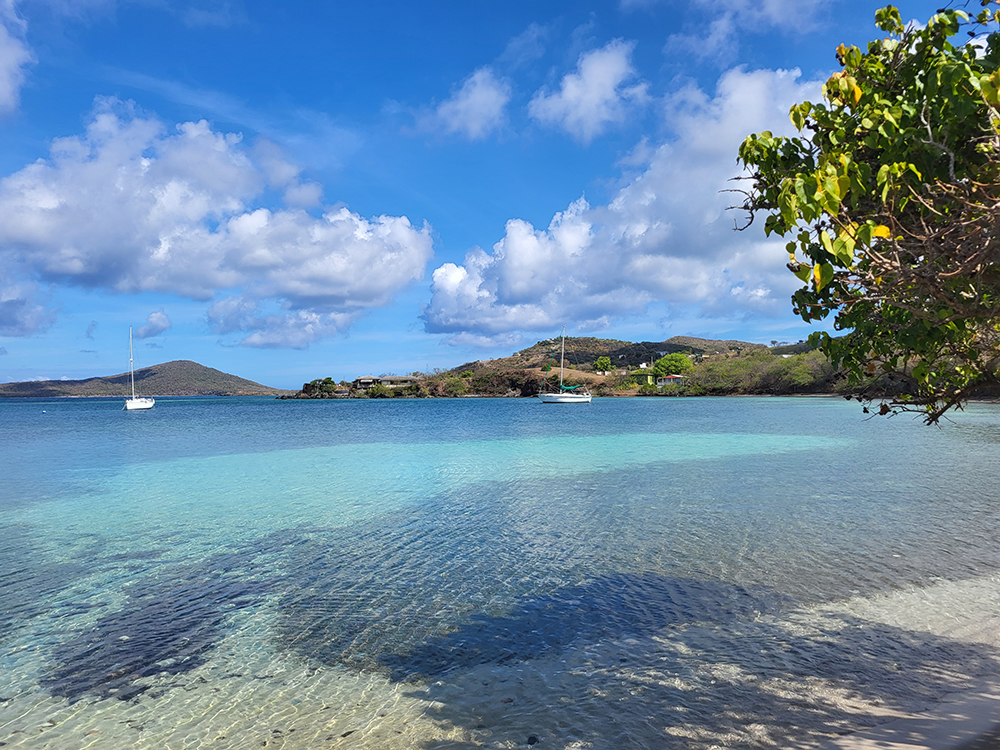We are working with partners to conduct nutrient and sedimentation monitoring on and around Culebra Island, Puerto Rico. Excess nutrients in coastal waters can result in harmful algal blooms, fish kills, and overall degradation of aquatic environments. High sedimentation can negatively affect the water clarity that seagrasses and corals depend on to survive. Our monitoring program will characterize key water quality parameters to allow coastal managers to assess the efficacy of ongoing road stabilization efforts and planned wastewater treatment plant improvements.
Why We Care

Scientists from NCCOS and the NOAA Restoration Center (housed in NMFS) are working with a local non-profit organization (Protectores de Cuencas) to conduct nutrient and sedimentation monitoring in the watershed and the nearshore waters of Culebra. The team is monitoring nutrients and sedimentation monthly, both under baseflow and stormflow conditions. Additionally, human dietary tracers (caffeine and sucralose) are being used to evaluate the presence of human waste in the environment. Pending outyear funding, the monitoring will continue for multiple years to capture potential interannual variability.
Benefits of Our Work
The monitoring program will characterize key water quality parameters to allow coastal managers to assess the efficacy of ongoing road stabilization efforts and planned wastewater treatment plant improvements.
Next Steps
The team’s field work began in May 2023 and will continue monthly for at least one year. During the initial field mission, NCCOS staff trained local partners to conduct ongoing sampling. Project data will be available online (NCEI database), and will be synthesized, including statistical and geospatial analysis, in a technical memorandum.
